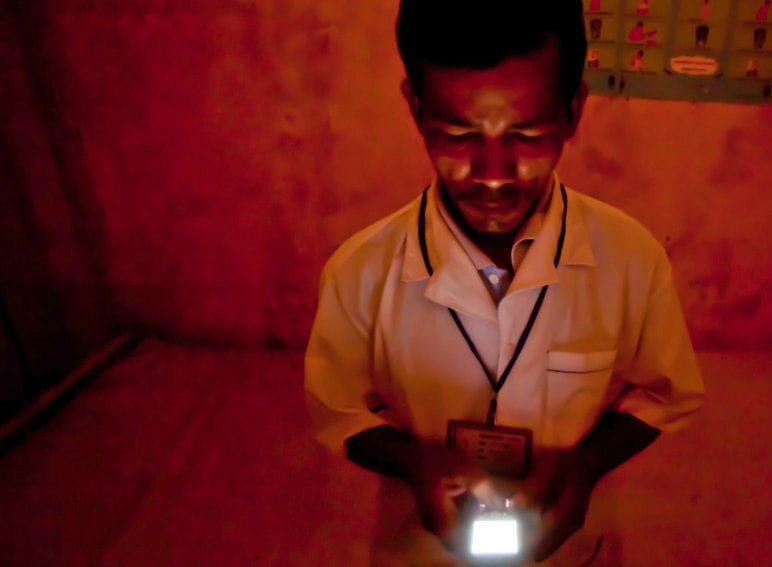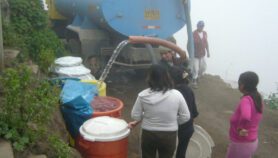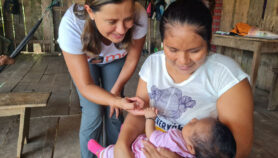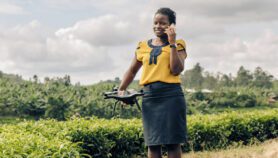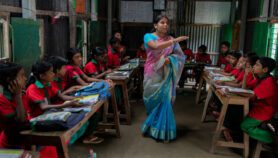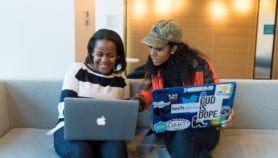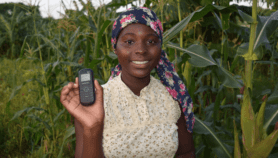By: Nick Kennedy
Send to a friend
The details you provide on this page will not be used to send unsolicited email, and will not be sold to a 3rd party. See privacy policy.
An organisation that uses surplus energy from mobile phone masts to refrigerate vaccines in remote areas was named as the Best Mobile Health Product or Service at the Global Mobile Awards this week (25 February).
Judges called the idea “simple, extraordinarily clever and truly innovative” at the awards, which took place at the Mobile World Congress in Barcelona, Spain.
Energize the Chain (EtC) is a not-for-profit organisation based in the United States that makes vaccines available in rural, off-grid locations by using the excess energy from power installations at cellphone towers to run refrigeration units.
More than two million children under five years of age die every year from vaccine-preventable diseases, many due to disruption of the cold chain required to keep temperature-sensitive vaccines effective, says Alice Conant, a founding member of the EtC.
“EtC not only prevents vaccine-preventable deaths, but it’s also a huge benefit to the healthcare system because it saves money and makes the whole system more efficient,” she tells SciDev.Net.
“We partner the telecom sector with the health sector. The telecom industry’s entire business model is based around having reliable, robust 24-hour energy at their cell tower sites. It turns out that they actually have excess energy and we partner with them to physically plug in vaccine refrigerators at the cell tower sites. Then you can visit once a month or once a week to bring the vaccines out for an immunisation session,” she says.
“EtC is a huge benefit to the healthcare system because it saves money and makes the whole system more efficient.”
Alice Conant, EtC
EtC works with Econet Wireless, an international telecommunications group, in Zimbabwe, and together they are working to expand across Africa. In addition, says Conant, EtC works with the Karuna Trust in India and plans to launch a pilot there shortly. She adds that the award will give EtC greater recognition so it can expand its work.
Several other awards were announced at the congress.
The Best Mobile Product, Initiative or Service in Emerging Markets Award went to a collaboration between the Vodafone Foundation in India, the Self Employed Women’s Association and the Cherie Blair Foundation for Women. The group developed an app that has allowed a women-run cooperative selling agricultural produce in a rural part of Gujurat, India, to use their phones to place orders, track inventory and manage their business efficiently.
According to the foundation the cooperative’s turnover has increased by over seven per cent since they launched the application in January 2013, and 300 new women entrepreneurs have joined the sales force.
The judges said: “Using this mobile service has increased efficiencies in the supply chain by 300 to 400 per cent, revolutionising the life of working women using this service.”
Cherie Blair, the founder of the Cherie Blair Foundation for Women, tells SciDev.Net: “This just goes to show how valuable mobile technology can be to women’s economic empowerment efforts. The mobile phone is more than just a communication tool. With mobile technology, we are raising the status of women and working towards levelling the playing field.”
Smart Communications, based in the Philippines, won the prize for Best Use of Mobile in Emergency or Humanitarian Situations with an app called SafePh, which is a campaign to raise public awareness about typhoons in the Philippines.
See below for a video by Econet Wireless on the Energize the Chain initiative:


